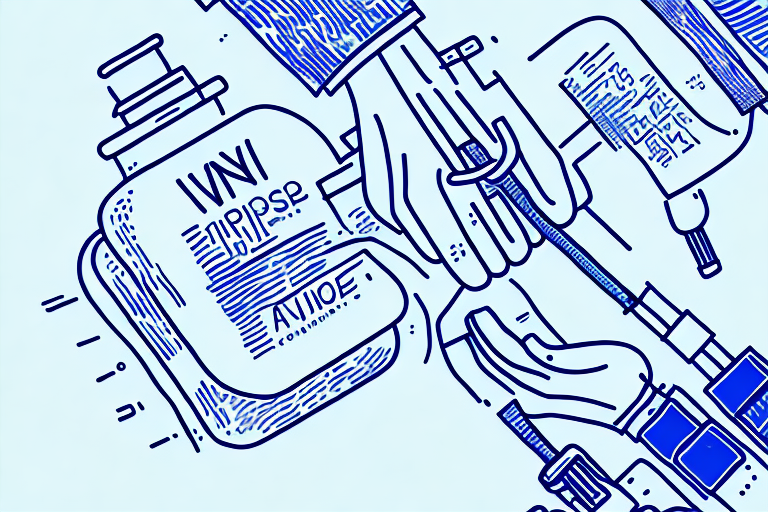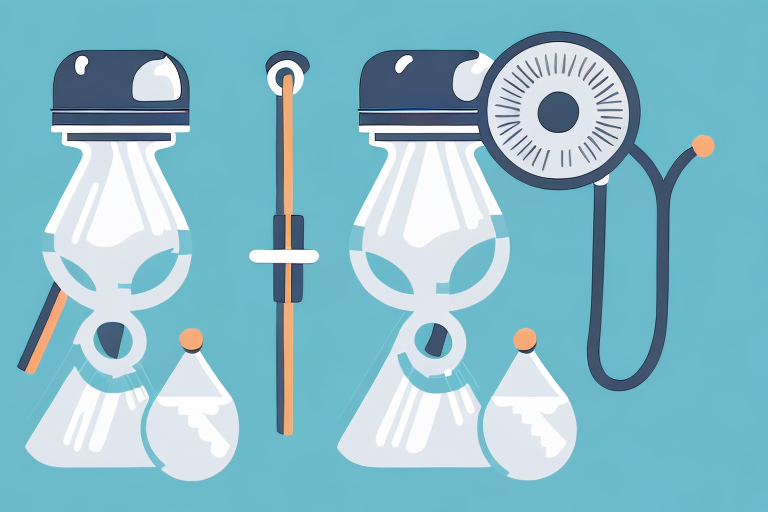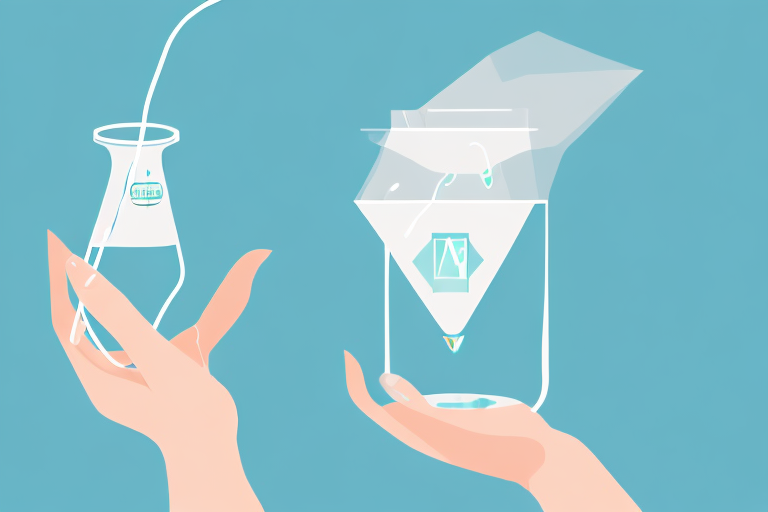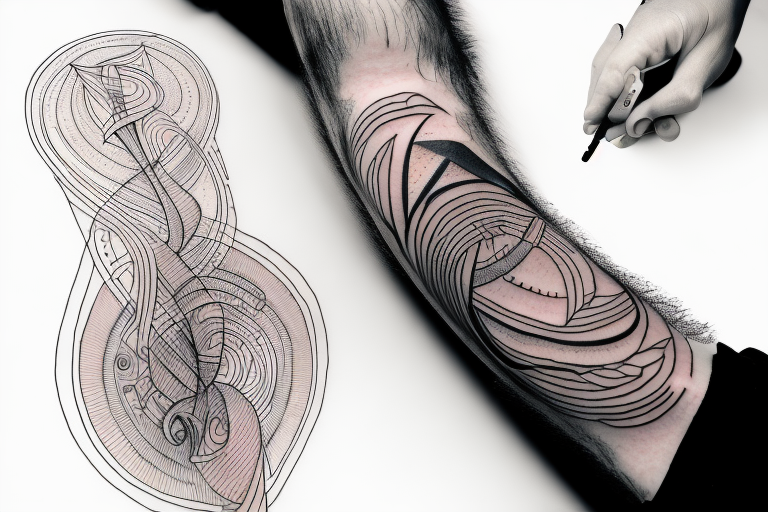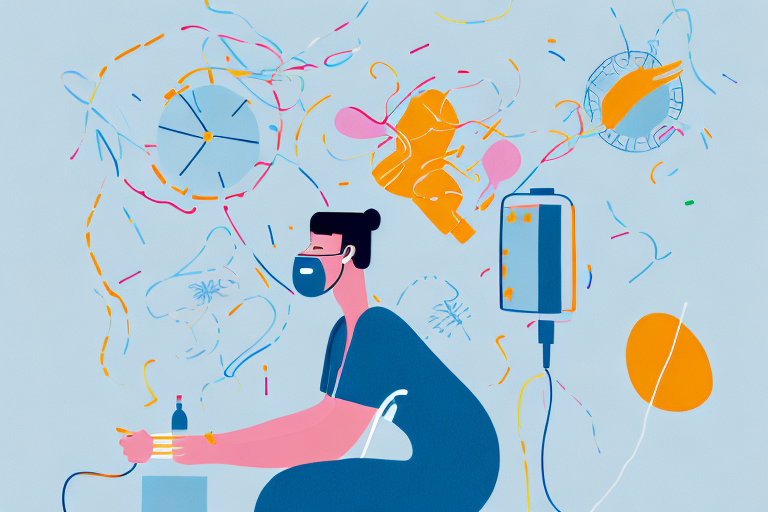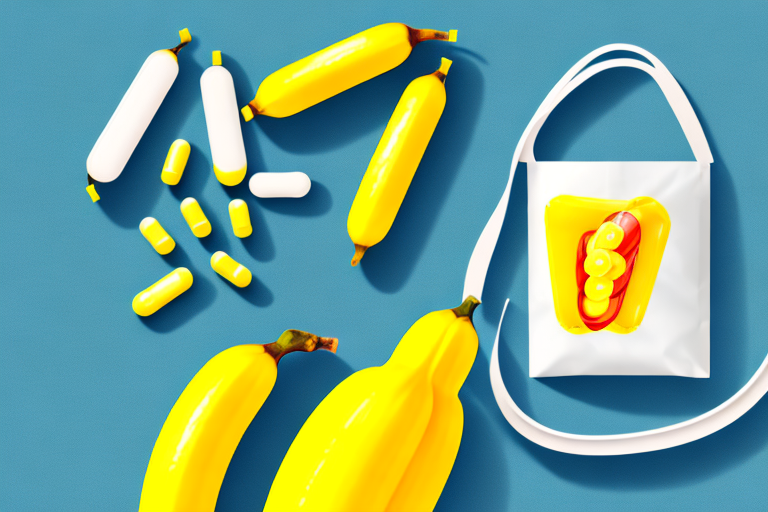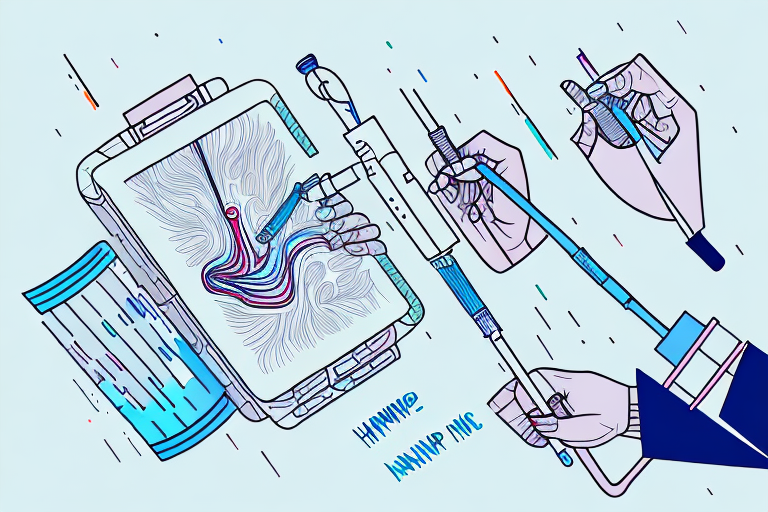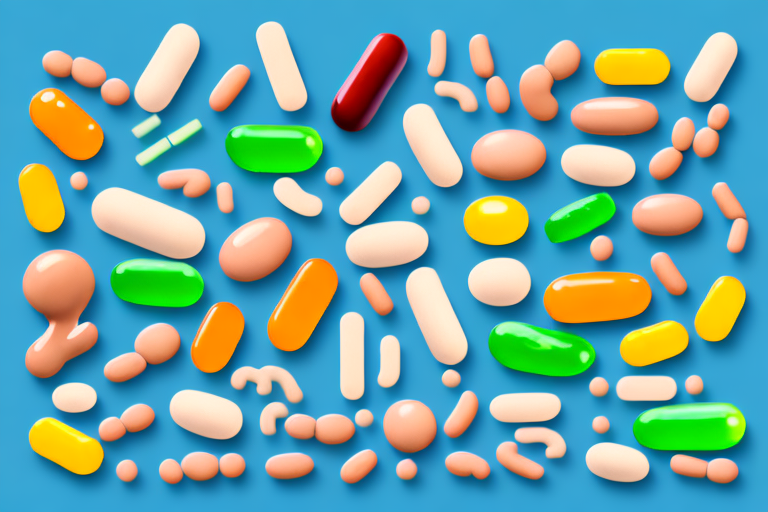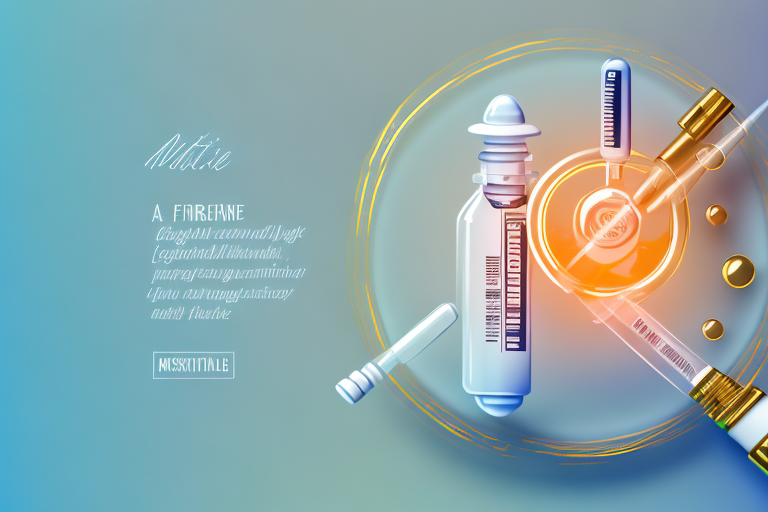How to Manage Hangxiety: Tips for Coping with Anxiety After a Night of Drinking
If you've ever experienced the unpleasant mix of a hangover and anxiety, you're not alone. Many people have reported feeling anxious after a night of drinking, a phenomenon known as "hangxiety". But what causes hangxiety, and how can you manage it? In this article, we'll explore some tips and strategies to help you cope with hangxiety, so you can enjoy your night out without worrying about the aftermath.

Understanding Hangxiety
Hangxiety is a relatively new term that refers to the feeling of anxiety that occurs after drinking alcohol. Those who experience hangxiety often report feeling more anxious than usual, even if they were not anxious before drinking. This phenomenon can be caused by a number of factors, including the way alcohol affects the levels of neurotransmitters in the brain, particularly GABA and glutamate.
What is Hangxiety?
Hangxiety is a term used to describe the feeling of anxiety that some people experience after a night of drinking. It can range from mild unease to severe anxiety or panic, and can last for several hours or even days after drinking. If you've ever experienced hangxiety, you might feel anxious or worried about things that wouldn't normally bother you, or you might feel physically uncomfortable, such as experiencing heart palpitations or sweating.
Hangxiety is not uncommon, and many people experience it to some degree after drinking. However, it can be particularly distressing for those who experience it frequently or severely. It can also lead to a cycle of drinking to alleviate anxiety, which can ultimately make the problem worse.
The Science Behind Hangxiety
There is still much to learn about hangxiety, but research suggests that alcohol affects the levels of neurotransmitters in the brain, particularly GABA and glutamate. These chemicals help regulate anxiety and mood, and when they are disrupted by alcohol, it can lead to feelings of anxiety and discomfort.
Additionally, alcohol can also disrupt sleep patterns, which can contribute to feelings of anxiety and unease. When we don't get enough sleep, our bodies and minds are not able to fully recover and recharge, which can leave us feeling more vulnerable to stress and anxiety.
How Alcohol Affects Anxiety Levels
Alcohol is a depressant, which means that it can help to ease feelings of anxiety in the short term. Many people turn to alcohol as a way to relax and unwind after a stressful day or to socialize with friends. However, as the body metabolizes alcohol, it can lead to a rebound effect, where anxiety levels actually increase after the alcohol has left the system.
This is because alcohol disrupts the balance of neurotransmitters in the brain, leading to a period of withdrawal and rebound activation of the nervous system. In addition, alcohol can also cause dehydration, which can contribute to feelings of anxiety and discomfort.
It's important to remember that everyone's experience with alcohol and hangxiety is different. Some people may be more prone to experiencing hangxiety than others, and the severity of symptoms can vary widely. If you are concerned about your drinking habits or experience frequent or severe hangxiety, it may be helpful to speak with a healthcare professional or a mental health provider.
Identifying Your Hangxiety Triggers
Hangxiety, the feeling of anxiety or unease after a night of heavy drinking, can be a difficult experience to manage. It can leave you feeling overwhelmed and unsure of how to cope. However, one of the key ways to manage hangxiety is to identify your triggers. Knowing what causes your anxiety can help you to avoid those triggers or manage them more effectively.
Here are some common hangxiety triggers to look out for:
- Feeling embarrassed or ashamed about your actions while drinking
- Feeling out of control or helpless while drinking
- Feeling stressed or anxious before or during drinking
- Drinking too much or too quickly
- Drinking on an empty stomach
It's important to note that everyone's triggers may be different, and what causes hangxiety for one person may not affect another. That's why it's important to pay attention to your own experiences and identify your personal triggers.
Keeping a Hangxiety Journal
One way to identify your hangxiety triggers is to keep a journal of your drinking experiences. This can be as simple as jotting down a few notes in your phone or a notebook. Write down how much you drank, what you drank, how you felt before and after drinking, and any other factors that may have contributed to your hangxiety. This can help you to identify patterns and warning signs, so you can take steps to manage your anxiety more effectively in the future.
For example, you may notice that you feel more anxious after drinking tequila than you do after drinking beer. Or, you may notice that you feel more anxious when you drink with certain people or in certain environments. By keeping track of these experiences, you can start to identify the specific triggers that cause your hangxiety.
Recognizing Patterns and Warning Signs
By keeping track of your drinking habits and how you feel afterwards, you may start to see patterns emerge. Perhaps you feel more anxious after drinking certain types of alcohol, or when you drink in certain situations. By recognizing these patterns, you can start to take steps to avoid those triggers or manage them more effectively.
For example, if you notice that you always feel anxious after drinking wine, you may want to avoid wine in the future or limit your consumption. Or, if you notice that you feel more anxious when you drink in crowded bars, you may want to choose quieter environments for your socializing.
Overall, identifying your hangxiety triggers is an important step in managing your anxiety and improving your overall well-being. By paying attention to your experiences and keeping track of your drinking habits, you can start to take control of your hangxiety and find ways to cope that work for you.
Prevention Strategies for Hangxiety
The best way to manage hangxiety is to prevent it from happening in the first place. Here are some strategies to help you reduce your risk of experiencing hangxiety:
Setting Drinking Limits
One of the most effective ways to prevent hangxiety is to limit your alcohol intake. Set a drinking limit for yourself before you start drinking, and stick to it. This can help you to avoid drinking too much or too quickly, which can lead to feelings of anxiety and discomfort.
It is important to note that setting drinking limits can be difficult, especially if you are in a social setting where alcohol is being served. However, it is important to prioritize your mental health and well-being over social pressure. Remember, it is okay to say no to alcohol or to limit your intake.
Choosing Low-Alcohol Beverages
Another way to reduce your risk of hangxiety is to choose low-alcohol beverages. Beer, wine, and spirits all vary in their alcohol content, so look for options that are lower in alcohol to help you maintain a moderate level of drinking.
Low-alcohol beverages can be just as enjoyable as their higher-alcohol counterparts. For example, you can try a light beer, a spritzer, or a low-alcohol cocktail. These options can help you to stay in control and avoid the negative effects of excessive drinking.
Hydrating and Eating Well Before and During Drinking
Drinking alcohol can dehydrate you, which can exacerbate feelings of anxiety. To prevent this, make sure to drink plenty of water before, during, and after drinking alcohol. Eating a healthy meal before drinking can also help to slow down the absorption of alcohol into your system, which can help you feel more in control.
It is important to note that drinking water and eating food can also help to prevent other negative effects of alcohol, such as headaches and nausea. So, make sure to prioritize your hydration and nutrition when drinking.
Practicing Mindful Drinking
Mindful drinking involves paying attention to how much you are drinking, how you are feeling, and how alcohol affects your body and mind. By practicing mindful drinking, you can become more aware of your limits and avoid drinking to the point of feeling anxious or uncomfortable.
Mindful drinking can also help you to enjoy alcohol in a more meaningful way. Instead of mindlessly consuming alcohol, you can savor each sip and appreciate the flavors and aromas of your beverage. This can help you to have a more positive and enjoyable drinking experience.
Overall, practicing prevention strategies for hangxiety can help you to have a more positive and enjoyable relationship with alcohol. By prioritizing your mental health and well-being, you can avoid the negative effects of excessive drinking and enjoy alcohol in a more mindful and meaningful way.
Coping Techniques for Hangxiety
If you do experience hangxiety, there are several coping techniques that can help you manage your symptoms:
Breathing Exercises and Meditation
One of the most effective ways to manage hangxiety is to practice breathing exercises and meditation. When you're feeling anxious, your breathing becomes shallow and rapid, which can exacerbate your symptoms. By taking slow, deep breaths from your diaphragm, you can help to calm your mind and reduce feelings of anxiety. You can also find a guided meditation app to help you relax and refocus. Meditation has been shown to reduce symptoms of anxiety and depression, and can be a powerful tool for managing hangxiety.
Physical Activity and Hangxiety Relief
Exercise is another great way to manage hangxiety. When you exercise, your body releases endorphins, which are natural mood boosters. Exercise can also help to reduce feelings of anxiety and stress, and can improve your overall mood. Try going for a run, doing yoga, or taking a dance class to help you feel more relaxed and in control. Not only will you feel better physically, but you'll also be taking positive steps towards managing your hangxiety.
Distraction Techniques
When you're feeling anxious, it can be helpful to distract yourself with a calming activity. Reading a book, taking a bath, or listening to relaxing music can all help you take your mind off your anxiety and help you feel more relaxed. You can also try practicing mindfulness techniques, such as focusing on your breath or engaging in a sensory activity. By redirecting your attention away from your anxiety, you can help to reduce your symptoms and feel more in control of your emotions.
Seeking Social Support
Hangxiety can be a lonely and isolating experience, but talking to a trusted friend or family member can help you feel less alone in your anxiety. Sharing your feelings with someone who understands can help to alleviate some of the stress and worry you may be feeling. You can also consider seeking professional help from a therapist or counselor, who can provide you with additional coping strategies and support. Remember, you don't have to go through hangxiety alone.
Hangxiety Recovery Tips
If you've had a particularly rough night of drinking and are experiencing hangxiety, there are some things you can do to help yourself recover:
Rehydrating and Replenishing NutrientsConsultation and Assessment
Drinking lots of water and eating a healthy, nutrient-rich meal can help to replenish your body after a night of drinking. This can help to reduce feelings of anxiety and help you feel more refreshed.
When you drink alcohol, your body loses a lot of fluids. This can lead to dehydration, which can cause headaches, fatigue, and feelings of anxiety. To combat this, make sure to drink plenty of water throughout the day and after a night of drinking. You can also try drinking coconut water or sports drinks to help replenish electrolytes.
Eating a healthy meal can also help to replenish the nutrients that your body may have lost during a night of drinking. Focus on eating foods that are rich in vitamins and minerals, such as leafy greens, fruits, and lean proteins. Avoid greasy or heavy foods, as these can further upset your stomach and contribute to feelings of anxiety.
Prioritizing Rest and Sleep
Getting plenty of rest and sleep can also help your body recover from drinking and reduce feelings of anxiety. Make sure to prioritize rest and relaxation to help your body and mind recover.
After a night of drinking, your body may be exhausted and in need of rest. Try to get at least 7-8 hours of sleep to help your body recover. You can also try taking a nap during the day if you feel particularly tired or fatigued.
It's also important to take it easy and avoid strenuous activities that can further stress your body. Instead, focus on relaxing activities such as reading, taking a bath, or meditating.
Gentle Exercise and Stretching
Gentle exercise, such as going for a walk or doing some light stretching, can help to release endorphins and reduce feelings of anxiety. This can also help to improve circulation and reduce muscle tension, which can contribute to feelings of anxiety.
While it may be tempting to stay in bed all day, getting some light exercise can actually help you feel better. Going for a walk outside can help you get some fresh air and sunshine, which can boost your mood and energy levels. You can also try doing some gentle yoga or stretching to help release tension in your muscles.
Practicing Self-Compassion
Finally, it's important to be kind and compassionate to yourself after a night of drinking. Don't beat yourself up for feeling anxious or uncomfortable; instead, focus on taking care of yourself and practicing self-care to help you feel better.
Hangxiety can be a difficult and uncomfortable experience, but it's important to remember that it's temporary and that you will feel better with time. Try to avoid negative self-talk and instead focus on positive affirmations and self-care activities that make you feel good.
You can also reach out to friends or loved ones for support and encouragement. Talking about your feelings and experiences can help you feel less alone and more connected to others.
When to Seek Professional Help
While hangxiety is a common experience, it's important to recognize when it becomes a problem. Hangxiety is a term used to describe the feeling of anxiety or nervousness that one experiences after drinking alcohol. This feeling can be caused by a number of factors, including dehydration, changes in brain chemistry, and the social and emotional effects of drinking.
Hangxiety can be a normal part of the drinking experience for some people. However, if you find that you are experiencing anxiety after drinking more frequently or intensely, or if your anxiety is becoming more severe and interfering with your daily life, it may be time to seek professional help.
Recognizing When Hangxiety is a Problem
It can be difficult to know when hangxiety is becoming a problem. Here are some signs that it may be time to reach out to a mental health professional:
- Your hangxiety is becoming more frequent or intense
- You are avoiding social situations or activities that involve drinking
- Your anxiety is interfering with your ability to work or enjoy everyday activities
- You are experiencing physical symptoms such as heart palpitations or sweating
If you are experiencing any of these symptoms, it's important to seek help from a mental health professional. They can help you to identify the underlying causes of your anxiety and develop an effective treatment plan.
Finding a Mental Health Professional
If you think you may benefit from professional help, talk to your primary care doctor or a mental health professional to discuss your options. They can help you to find a therapist or psychiatrist who specializes in anxiety disorders and can provide you with the support and guidance you need to manage your symptoms.
There are many effective treatments for anxiety, including therapy, medication, and lifestyle changes. It's important to work with a mental health professional to determine the best course of treatment for your individual needs.
Treatment Options for Hangxiety and Anxiety Disorders
Treatment for hangxiety and anxiety disorders may involve a combination of approaches, including therapy, medication, and lifestyle changes. Cognitive-behavioral therapy (CBT) is a particularly effective approach for treating anxiety, and can help you to identify and manage your triggers, develop coping strategies, and cultivate a more positive mindset.
Medications such as selective serotonin reuptake inhibitors (SSRIs) may also be helpful for managing anxiety symptoms. These medications work by increasing the levels of serotonin in the brain, which can help to regulate mood and reduce feelings of anxiety.
Finally, making lifestyle changes such as reducing alcohol intake, exercising regularly, and practicing relaxation techniques can all help to reduce feelings of anxiety and improve overall well-being. It's important to work with a mental health professional to develop a comprehensive treatment plan that addresses all aspects of your mental and physical health.
In Conclusion
Hangxiety can be a challenging experience, but it's important to remember that you are not alone. By identifying your triggers, practicing prevention strategies, and developing coping techniques, you can manage your anxiety and enjoy your social life without feeling overwhelmed. If you do need professional help, there are many effective treatments available to help you manage your hangxiety and improve your overall well-being.
© 2024 IV Fluids | All Rights Reserved | Powered By OMG Marketing

